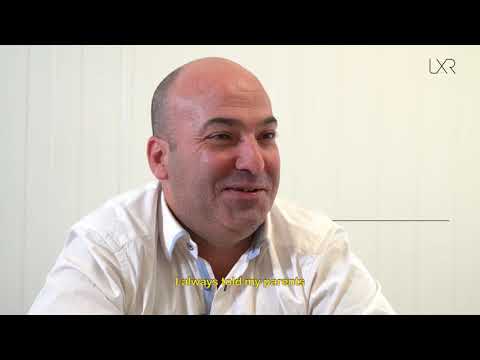Pediatric Nurse: Job Description & Salary

Pediatric Nurse Job Description Template
Pediatric Nurse Job Description A pediatric nurse is a healthcare professional who specializes in providing medical care for infants, children, and adolescents. They work alongside pediatricians and other healthcare professionals to ensure the well-being and proper development of young patients. Pediatric nurses play a crucial role in promoting children’s health, preventing diseases, and providing compassionate care to their patients. The responsibilities of a pediatric nurse include assessing the health status of young patients, administering medications, monitoring vital signs, and providing age-appropriate medical treatments. They also educate parents and caregivers on various aspects of child health, including nutrition, growth, and development milestones. Pediatric nurses are trained to communicate effectively with children and their families, using age-appropriate language and techniques to ensure understanding and cooperation. Pediatric nurses may work in a variety of healthcare settings, including hospitals, clinics, pediatricians’ offices, and schools. They collaborate with a multidisciplinary team of healthcare professionals, including pediatricians, pediatric surgeons, and child psychologists, to provide comprehensive care to their patients. They may also participate in research studies and contribute to the development of pediatric healthcare policies and protocols. To become a pediatric nurse, one must complete a nursing degree program and obtain a registered nurse (RN) license. Specialized training in pediatric nursing is also required, which can be obtained through certification programs or advanced degrees in pediatric nursing. In summary, pediatric nurses are dedicated healthcare professionals who care for the physical, emotional, and psychological well-being of children. Their compassion and expertise contribute to the overall health and development of young patients, making them an integral part of the healthcare team.Pediatric Nurse Responsibilities
Pediatric Nurse Requirements
How Much Does A Pediatric Nurse Make?
Pediatric Nurse Salary
| Position | Salary |
|---|---|
| Registered Nurse (RN) | $60,000 – $90,000 |
| Pediatric Nurse Practitioner (PNP) | $80,000 – $120,000 |
| Pediatric Intensive Care Unit (PICU) Nurse | $70,000 – $100,000 |
| Neonatal Intensive Care Unit (NICU) Nurse | $65,000 – $95,000 |
| Pediatric Oncology Nurse | $75,000 – $110,000 |
A pediatric nurse is a healthcare professional who specializes in providing medical care to infants, children, and adolescents. The salary of a pediatric nurse can vary depending on factors such as experience, education, and location. The table above provides an overview of the salary range for different positions within pediatric nursing. It is important to note that these figures are approximate and can be subject to change. Pediatric nursing can be a rewarding career choice for those who are passionate about caring for and improving the health of young patients.
Pediatric Nurse Salaries by Country
Top Paying Countries for Pediatric Nurse
| Country | Average Salary (per year) |
|---|---|
| United States | $71,730 |
| Australia | $61,080 |
| Canada | $59,180 |
| United Kingdom | $51,830 |
| Germany | $48,600 |
A pediatric nurse’s salary can vary depending on the country they work in. According to recent data, the top paying countries for pediatric nurses are the United States, Australia, Canada, the United Kingdom, and Germany. In the United States, pediatric nurses earn an average salary of $71,730 per year, making it the highest paying country for this profession. Australia and Canada also offer competitive salaries for pediatric nurses, with average annual incomes of $61,080 and $59,180 respectively. The United Kingdom and Germany follow closely behind, with average salaries of $51,830 and $48,600 respectively. It is important to note that these figures are subject to change and can vary based on factors such as experience, qualifications, and location within each country.
A video on the topic Pediatric Nurse
Video Source : Enroll.healthInterview Questions for Pediatric Nurse
1. What made you decide to become a pediatric nurse?
I have always had a passion for working with children and a desire to make a positive impact on their lives. Becoming a pediatric nurse allows me to combine my love for nursing with my love for children.
2. How do you approach working with young patients who may be scared or anxious?
I approach working with scared or anxious young patients by creating a calm and comforting environment. I use age-appropriate explanations to help them understand what is happening and provide emotional support throughout their healthcare experience.
3. How do you ensure effective communication with both children and their parents/guardians?
I ensure effective communication with children by using simple language and engaging them in their care. With parents/guardians, I listen actively, provide clear explanations, and address any concerns they may have.
4. How do you handle difficult or challenging situations that may arise while caring for pediatric patients?
When faced with challenging situations, I remain calm and composed. I prioritize the safety and well-being of the child while seeking guidance from more experienced colleagues or the healthcare team. I understand the importance of maintaining a positive and supportive environment for the child and their family.
5. How do you stay updated on the latest advancements and research in pediatric nursing?
I stay updated on the latest advancements and research in pediatric nursing by attending conferences, workshops, and seminars. I also regularly read professional journals and participate in online forums and discussions with fellow pediatric nurses.
6. What is your approach to providing pain management for pediatric patients?
My approach to providing pain management for pediatric patients is to assess their pain levels regularly and use appropriate interventions based on their age and condition. This may include administering medication, utilizing distraction techniques, or employing relaxation and imagery techniques.
7. How do you collaborate with other healthcare professionals to ensure comprehensive care for pediatric patients?
I collaborate with other healthcare professionals by actively participating in interdisciplinary team meetings, sharing information and observations, and working together to develop and implement a comprehensive care plan for pediatric patients. This ensures that all aspects of their healthcare needs are addressed.
8. How do you educate parents/guardians about pediatric illnesses, treatments, and preventive care?
I educate parents/guardians by providing clear and concise explanations about pediatric illnesses, treatments, and preventive care. I use visual aids, written materials, and demonstrations to enhance understanding. I also encourage questions and provide additional resources for further education.
9. How do you handle the emotional aspect of caring for pediatric patients and their families?
I handle the emotional aspect of caring for pediatric patients and their families by practicing empathy and compassion. I offer emotional support, actively listen to their concerns, and provide guidance and resources as needed. I also have a strong support system in place for myself to cope with the emotional demands of the job.
10. What do you find most rewarding about being a pediatric nurse?
The most rewarding aspect of being a pediatric nurse is seeing the positive impact I can have on a child’s life. It brings me joy to witness their resilience and recovery, and to know that I played a role in their journey towards health and well-being.






